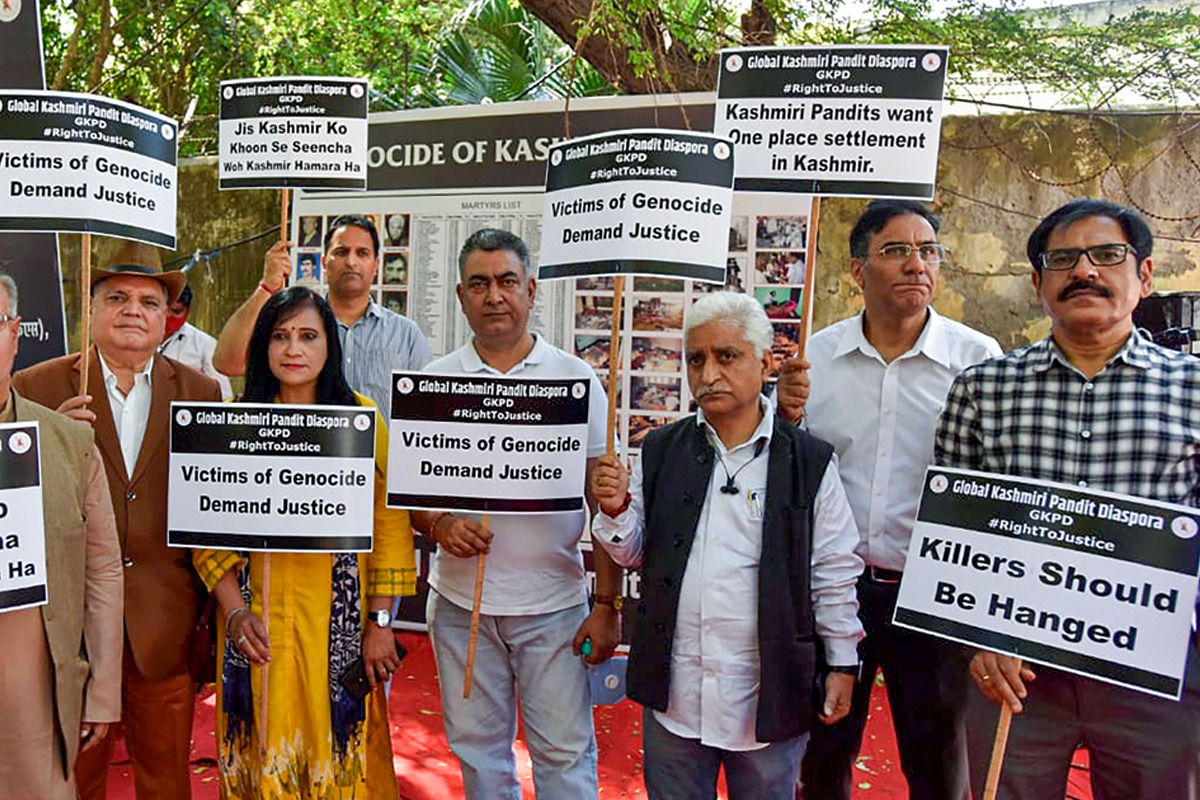The quest for justice in the tragic annals of the Kashmiri Pandit genocide and their subsequent exodus appears to have taken a positive turn as Jammu and Kashmir Police reopen the killing of prominent figures in the Valley after more than three decades, offering a glimmer of hope for the community.
The decision has come as a pleasant breeze after the Supreme Court’s 2017 refusal to reopen 215 cases pertaining to the brutal killing of approximately 700 Kashmiri Pandits during the turbulent period of forced displacement.
ALSO READ: J&K is trapped in a bureaucratic mesh, and lacks vision, direction
The apex court’s previous stance, hinging on the challenge of securing viable evidence after nearly three decades, appeared to foreclose the possibility of re-investigation and trial. Yet, the passage of time has witnessed changes, rendering the previous argument less potent in the face of renewed determination.
Earlier this week, the Jammu and Kashmir Police’s State Investigation Agency (SIA) sought public help to gather evidence regarding the slaying of retired Kashmiri Pandit judge Neelkanth Ganjoo at the hands of terrorists in 1989.
This rekindled focus on justice reflects a broader endeavor to uncover the intricate web of criminal conspiracies that may have fueled a series of such targeted killings. The Neelkanth Ganjoo case serves as a poignant reminder of the horror endured by countless Kashmiri Pandits during that tumultuous period. The reopening of the case involving the Nadimarg massacre, where LeT terrorists cold-bloodedly killed 24 Kashmiri Pandits, by the J&K High Court underscores the need for a comprehensive re-evaluation of these heinous crimes.
ALSO READ: ‘Kashmir Whisperers’ undoing gains made after Article 370 repeal
The Central government’s current endeavor to introduce a Bill during the ongoing monsoon session of parliament, aiming to reserve three assembly seats in Jammu and Kashmir, with two allocated for migrant Kashmiri Pandits and one for displaced individuals from Pakistan-occupied Kashmir (PoK) residing in Jammu, indicates a proactive approach to ameliorate historical wrongs.
Nevertheless, these nascent strides towards justice are tempered by the recognition that the scars of the past cannot be hastily erased. The anguish and collective trauma endured by the Kashmiri Pandit community continue to cast a long shadow. The families of the victims yearn for closure and justice, and these renewed efforts to revisit cases offer a glimmer of hope that accountability will finally be established for the unspeakable atrocities committed against them.









